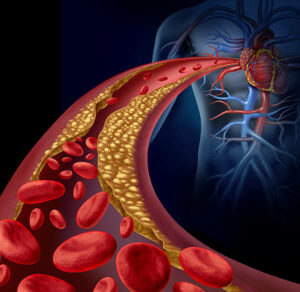Choosing the right primary care doctor is very important for your health. You want a doctor you can trust, who listens to you, and who cares about your well-being. For people living in Wellington, FL, the choice might feel difficult. Everyone wants a doctor with skill, kindness, and a connection to the community.
In Wellington, Advanced Medical’s Dr. Ishan Gunawardene is known for his experience, dedication, and focus on putting patients first. This article explains why so many families trust Dr. Gunawardene with their care and what makes his practice special.
A Board-Certified Expert
Dr. Ishan Gunawardene is certified by the American Board of Internal Medicine. This certification shows that he has successfully passed challenging exams. It also proves that he meets the highest standards for knowledge and patient care in internal medicine.
Choosing a board-certified doctor means selecting someone who is committed to continuous learning. They are dedicated to maintaining strong medical skills.
Education and Training that Matter
Dr. Gunawardene earned his medical degree from St. George’s University School of Medicine. He later finished his internal medicine residency at Coney Island Hospital in Brooklyn, New York. It is connected to the State University of New York. During his training, he worked directly with patients and treated a wide variety of health issues.
Because of this experience, he is well-prepared to handle both common and more complicated medical problems. This means that patients can feel confident that Dr. Gunawardene can address many of their health concerns.
Dedication to Teaching and Better Care
Dr. Gunawardene values education in medicine. He works as an adjunct clinical associate professor in internal medicine.
He has trained many doctors at Wellington Regional Medical Center. Many of these doctors are now respected family medicine providers in the local community. Dr. Gunawardene’s teaching efforts directly improve the quality of healthcare in Wellington. By guiding new doctors, he helps make patient care in the area better.
Dr. Gunawardene’s skills as a teacher are well-recognized by the Wellington medical community. Residents at Wellington Regional Medical Center awarded him the Golden Apple Award for being the best teacher in internal medicine in 2010, 2011, and 2013. This award reflects his strong medical knowledge and ability to teach clearly.
Leadership in Local Healthcare
Dr. Gunawardene has taken part in many important hospital committees. These include the medical executive committee at Wellington Regional Medical Center. He has also been involved in groups focused on utilization, education, and peer review.
Through these roles, he helps shape the quality of care that patients receive in the Wellington area. He takes part in making important decisions about patient care based on evidence and best practices. This shows patients that their doctor is actively involved in improving local healthcare.
Commitment to Patient Care
At Advanced Medical in Wellington and Royal Palm, Dr. Gunawardene is dedicated to giving the best primary care. He believes that every patient should get care that fits their needs. Whether you need a regular check-up, help with a long-term condition, or advice when you are sick, Dr. Gunawardene is here to help.
He takes time to listen to patients and understand their concerns. He explains health problems and treatments in simple, easy-to-understand words, so you feel comfortable and informed. His care goes beyond the office visit. He works with patients to build a long-lasting partnership that adapts as your health needs change.
Community Trust and Local Impact
Many Wellington families already rely on Advanced Medical for care. Dr. Gunawardene’s patients appreciate his thoroughness and dedication. They feel they are not just a number; they are part of a healthcare family committed to their well-being. This reputation for reliable care is hard-earned and well-deserved.
By staying active in local hospitals, teaching the next generation of doctors, and leading medical teams, Dr. Gunawardene keeps his knowledge current and his skills sharp as a primary care physician in Wellington. This translates into better care for you and your loved ones.
Teamwork with Nurse Practitioner Shariffa Gunawardene
Good care comes from a good team. At Advanced Medical, Dr. Gunawardene works with nurse practitioner Shariffa Gunawardene. Together, they provide great care for the whole family. You can count on a team that cares about your health. By working together, they make it easier for patients to get the care and help they need.
The Best Primary Care Doctor in Wellington, FL
Choosing a primary care doctor is an important step for a healthier life. Dr. Ishan Gunawardene at Advanced Medical is one of the best primary care doctors in Wellington. He has board certification, years of training, and experience as a local leader. He is deeply committed to taking care of patients in Wellington. Patients benefit from his medical skills and his work as a teacher. His role in local hospitals and medical education helps set a high standard of care.
You deserve a doctor in Wellington who listens to you and a care team that supports you. At Advanced Medical, Dr. Gunawardene and nurse practitioner Shariffa Gunawardene offer expert care and truly care about your health. You can trust your health to Dr. Gunawardene and the best family practice in Wellington. Call us at (561) 434-1935 or fill out our online appointment request form today. Your health is our top priority.
We look forward to serving you!
Sources:
https://www.wellingtonadvancedmed.com/meet-the-providers/
https://my.clevelandclinic.org/health/articles/23467-primary-care-physician






